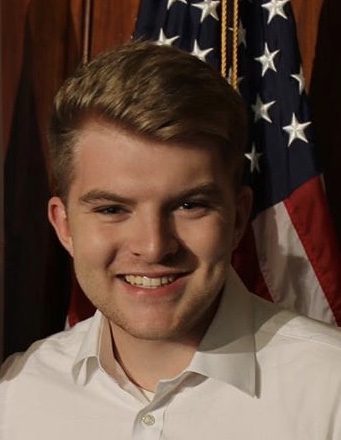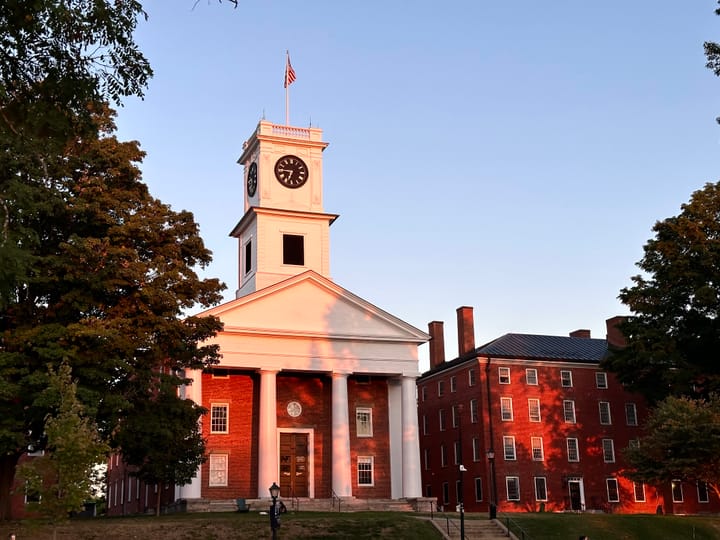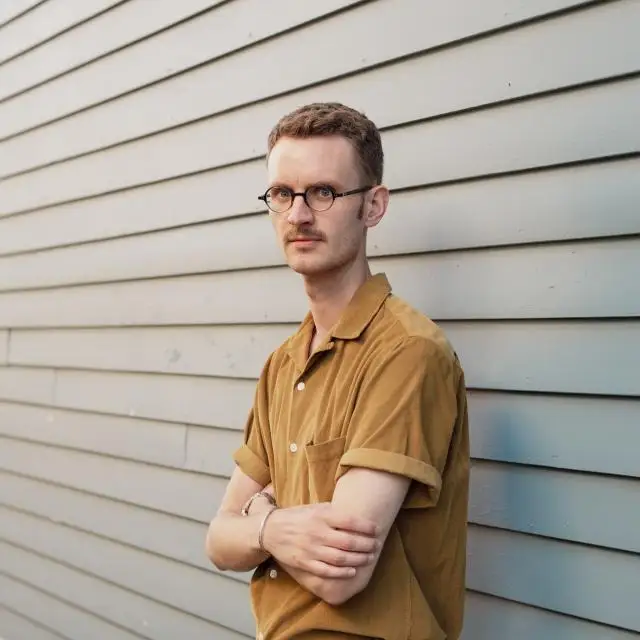Thoughts on Theses: Ben Gilsdorf

Ben Gilsdorf is a history major. He is writing his thesis on the history of voting rights in Hawaii. His thesis advisor is Professor of History and Environmental Studies Ted Melillo.
Q: What is your thesis about?
A: Broadly, I’m looking at the history of voting rights in Hawaii and how it relates to U.S. colonialism, specifically looking first at the way in which democracy and voting rights [were] conceived in the 19th century as a way for the U.S. colonizers to legitimate their presence in government; and then as time passes, it’s looking at the ways in which the colonial government of Hawaii excluded native Hawaiian and Asian voices from government through things like ID laws, poll taxes, closing voting booths early and, specifically, legislating to ban people of Asian origin from voting. And then the last part [of my thesis] is looking at how those systems worked their way into statehood Hawaii. So Hawaii was, for example, the second state in the country to enact voter ID laws, it had literacy tests through the 1970s, and so it’s looking at how these colonial conceptions of maintaining power through suppressing the vote were maintained before, during and after the explicit colonization of Hawaii.
Q: How did you become interested in this topic?
A: I’ve always been interested in voting and voting rights. I work with ACVotes on campus, and I wrote this paper [on voting rights] in the spring of 2019 — so, the spring of my sophomore year — as part of a history department seminar, and I got really interested in the topic doing that paper, so I decided I wanted to write more about it.
Q: Who’s your thesis advisor and how have they been supporting you with your research?
A: My advisor is Professor [of History and Environmental Studies] Ted Melillo. He is an absolutely wonderful advisor. He’s one of those professors who really encourages students, when they have a passion for something, you know, he really wants to support that. He’s been great for giving me advice, [for instance] about different sources to consult, but more importantly, sort of nudging me or bringing up more theoretical questions for me to consider. So, not necessarily like, ‘Oh, look at this source,’ or like, ‘make this claim,’ but like, ‘here’s some background readings and larger debates within the subject that you should think about how you’re going to contribute to’ — which I’ve always been very appreciative of.
Q: What has been your favorite part of the research process so far?
A: I’m looking at a lot of really old newspaper sources, and I speak Japanese, so I’ve been looking at some Japanese newspaper archives as well, and it’s just so cool to see these debates taking place in newspapers from over 120 years ago. I feel like I’m able to sort of re-live that moment, and there’s just a wealth of sources that talk about exactly what I need them to talk about right there in front of me, so it’s making the research a lot easier than I thought it was going to be.
Q: Have you found anything unexpected in your research?
A: Oh, that’s a tricky one. I think I’ve learned a lot about the complicated racial politics of Hawaii between native Hawaiians and American colonizers and a lot of Asian migrant laborers who came to Hawaii but then soon became the largest racial group in the islands. Trying to figure out the relationship between those three racial groups has been really tricky, and I’m still trying to figure that out in a way that makes sense for what I’m trying to argue, or like, I’m trying to formulate that into something that I can understand, and that’s been very tricky, that’s something I didn’t really see coming when I started.
Q: What relevance do you think your thesis has for current events?
A: I think a lot of people think that — or this is something that’s been discussed a lot in the aftermath of a lot of the Black Lives Matter protests this summer about voting being sort of like the be-all and end-all of participation in politics, and my thesis is showing that oftentimes voting was created as a way to sort of dilute the effects that you can have on the political system, especially in places that have been touched by U.S. colonialism. And so showing that voting, you know, for a lot of people is not going to be the political avenue through which they can effect the most change.
Q: Does this thesis relate to work you’re interested in pursuing in the future?
A: Yeah, I definitely think I’m really interested in voting rights as a subject, especially the way that our current situation and the current problems we’re facing have stemmed from historical conditions. And what’s interesting, too, is that Hawaii is a very Democratic, blue state, and so oftentimes people think that it’s sort of without its flaws in regards to voting rights; people think of it as a red [Republican] state, Southern issue. And so it’s been really interesting to see how parts of the country that don’t fit into our traditional historical narratives also have struggled with voting rights.
Q: What obstacles or challenges have you encountered that you didn’t foresee?
A: I mean, I wanted to go to Hawaii and look through the state archives, and now I don’t think I’ll be able to go because of the coronavirus. So that’s sort of, I think that’s everyone’s answer. I think it’s also [that] I’ve just never done a project of this size before, and so sometimes there’s just so much in front of me, I don’t know where to start. And so it’s also hard to break it into smaller sections, because those small sections all need to come together coherently, so I’m afraid if I write all the different chapters and put them all together, it doesn’t make sense, I’ll be sort of stuck, and so, just the size of the project has been very daunting for me.
Q: What advice do you have for people who are thinking of writing a history thesis?
A: I would say, definitely choose a topic that you have [thought about] — I think it was helpful that I’d written about the topic before. It gave me some familiarity and I had a really good grounding in the subject before I started writing. And I would also say choose something that you’re really interested in, because you’re going to be working on this project for about a year, and so you have to be very passionate about it in order to continue the enthusiasm from start to finish.





Comments ()